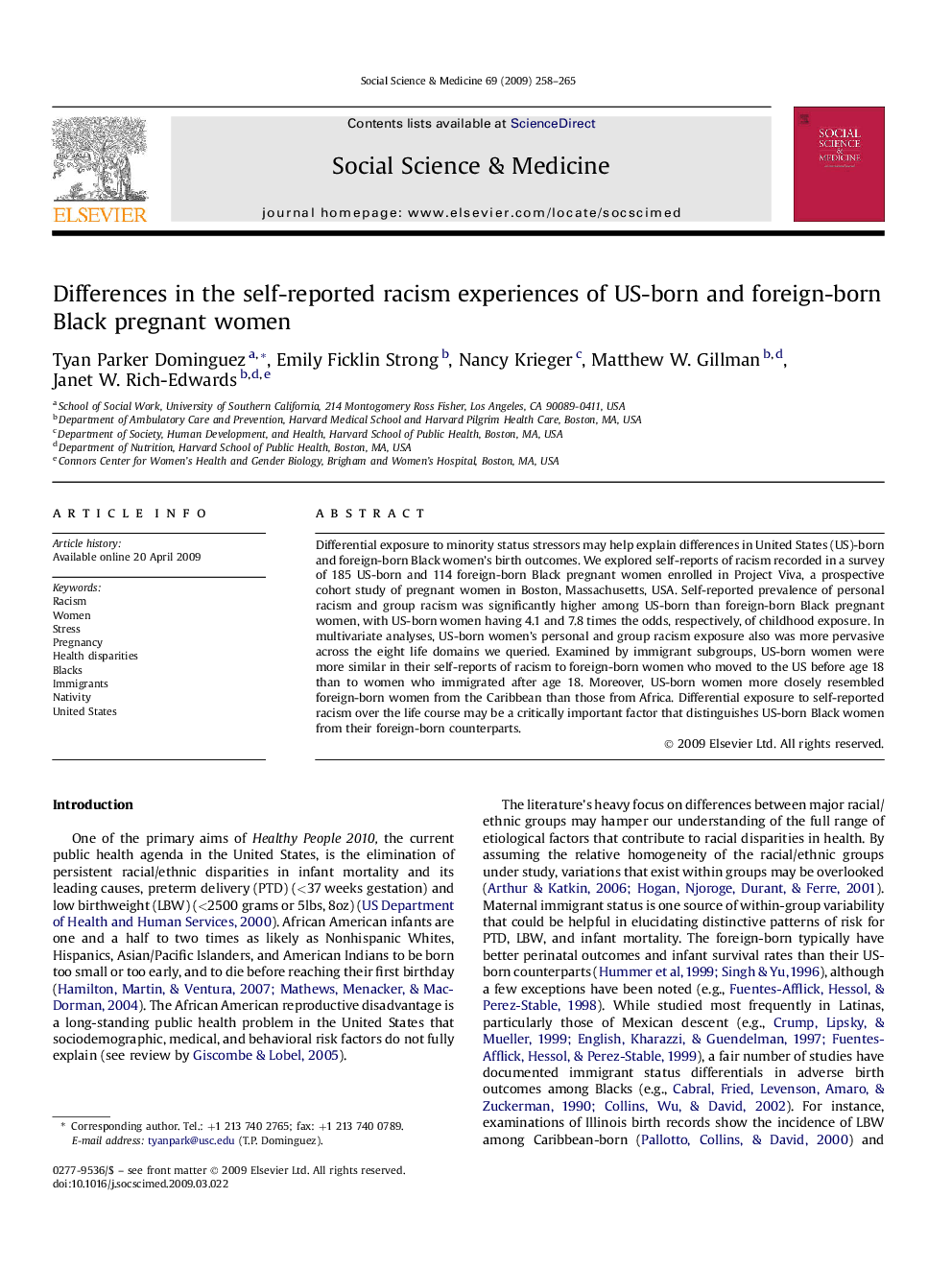| Article ID | Journal | Published Year | Pages | File Type |
|---|---|---|---|---|
| 10472151 | Social Science & Medicine | 2009 | 8 Pages |
Abstract
Differential exposure to minority status stressors may help explain differences in United States (US)-born and foreign-born Black women's birth outcomes. We explored self-reports of racism recorded in a survey of 185 US-born and 114 foreign-born Black pregnant women enrolled in Project Viva, a prospective cohort study of pregnant women in Boston, Massachusetts, USA. Self-reported prevalence of personal racism and group racism was significantly higher among US-born than foreign-born Black pregnant women, with US-born women having 4.1 and 7.8 times the odds, respectively, of childhood exposure. In multivariate analyses, US-born women's personal and group racism exposure also was more pervasive across the eight life domains we queried. Examined by immigrant subgroups, US-born women were more similar in their self-reports of racism to foreign-born women who moved to the US before age 18 than to women who immigrated after age 18. Moreover, US-born women more closely resembled foreign-born women from the Caribbean than those from Africa. Differential exposure to self-reported racism over the life course may be a critically important factor that distinguishes US-born Black women from their foreign-born counterparts.
Related Topics
Health Sciences
Medicine and Dentistry
Public Health and Health Policy
Authors
Tyan Parker Dominguez, Emily Ficklin Strong, Nancy Krieger, Matthew W. Gillman, Janet W. Rich-Edwards,
